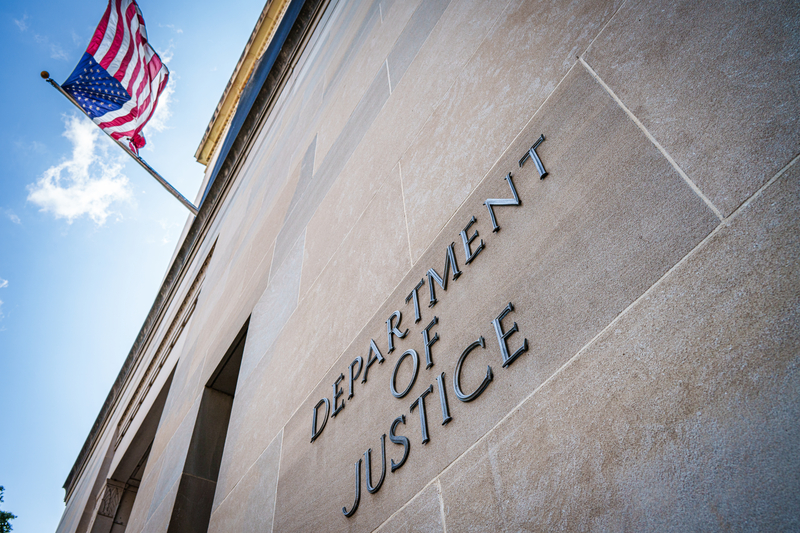The same lawyers who helped build the regulatory case against crypto are now advising crypto firms. Some of them have gone to law firms, and it might seem a bit more noticeable now that the SEC has lost a few high-profile cases in court when battling crypto firms. These lawyers were key in helping build the SEC’s case that crypto assets were unregistered securities and in establishing certain instances of fraud involving digital currency.
Steven Peikin is now at Sullivan & Cromwell and is working on the Coinbase lawsuit from the defense side. He was director of the SEC’s Division of Enforcement from 2017 to 2020. In a July 2023 courtroom, Peikin questioned the SEC’s argument that its decision to allow Coinbase to list and approve its IPO prospectus was not an endorsement of the business.
And Ladan Stewart, the lawyer who oversaw the SEC’s case against Coinbase, recently joined the law firm White & Case. She had served for over eight years in the SEC’s enforcement division, taking on crypto-focused litigation against Ripple, Terraform Labs and others.
Her employer loves her background, with the head of the firm’s white-collar practice, Joel Cohen, saying it is a big asset “given the heightened regulatory scrutiny of the crypto industry in recent years”.
The lingering question is: Does the revolving door of talent indicate regulatory capture, such that regulators will go easy on the industry to later acquire one of those well-paying jobs, influencing the regulatory landscape to favor regulated entities with their regulatory initiatives?
“I have never seen any prosecutor go easy on any industry to be considered for later employment. If anything, government culture rewards aggressive prosecution, in terms of career advancement.”
Howard Fischer, partner, Moses & Singer LLP
Axios had this to say after observing SEC lawyers in the Coinbase case: “They were deferential to Peikin as he and others defended the business in the New York courtroom.” And, interestingly, Ripple pulled off a victory against the securities watchdog in the same building that same day.
What expert observers say
Axios quoted an unnamed securities lawyer who called SEC defection a “time-honored tradition”. That source said the argument that regulators go easy on the industry to snag those jobs later is mostly wrong. “If Elizabeth Warren decided she wanted to leave government and go work for Big Law or Wall street, she could name her price and place of employment,” the lawyer said.
GRIP spoke to Howard Fischer, a partner at Moses Singer LLP in New York and a former SEC prosecutor. He said he is strongly in favor of “cross-pollination” between the public and private sectors.
“Especially in more complex areas with rapid changes in regulatory approach, like crypto regulation, private entities benefit from having personnel with direct experience of the laws with which they need to comply, and is more likely to lead to a greater culture of compliance and disclosure. I have never seen any prosecutor – criminal or civil – go easy on any industry in order to be considered for later employment. If anything, government culture rewards aggressive prosecution, in terms of career advancement or awards,” Fischer said.
Fintech regulation expert Brad Mirkin, managing director at The Berkeley Research Group in Boston and a former senior litigation counsel at FINRA, also weighed in. “Former regulators bring the innovation economy and its counsel insights into how regulators see the innovation landscape, their vantage points, dilemmas and questions as well as the internal dynamics of emerging regulation,” he said.
“And the ex-practitioners bring regulators the industry’s vantage points, plus immense insights into their technologies, forward-looking approaches and, yes, the industry’s problems and in some cases, problem companies. Ideally, each side benefits from understanding the other. There’s no doubt that the system has proven to be imperfect, but its benefits should not be shrugged off,” Mirkin added.
GRIP comment
I can’t think of why this regulator and this industry sector are more subject to regulatory capture than any other. (I’m looking at you, US aviation regulatory and corporate sector.)
The knowledge, skills and perseverance to strictly regulate can easily be rechanneled to ably defend the industry player. And not every SEC employee is going to go work at or defend private and public companies after they leave the agency, despite the SEC’s retention problems.
Although crypto still has skeptics, the days of being skeptical and a total roadblock are waning. A new group of bipartisan lawmakers has introduced legislation that promotes digital currency and even uber-skeptic SEC Chair Gary Gensler can admit the courts and public are increasingly behind certain crypto product lines and offerings to the public.
And a major industry participant, Coinbase (yet again), urges the government to better regulate the crypto market to protect consumers, following FTX’s crash.
So, are we all just waiting for lawmakers to do their jobs, and the enforcement actions are the costly evidence of a gap in regulatory certainty?
Hat tip to Axios for bringing this topic up in its crypto coverage this week.













